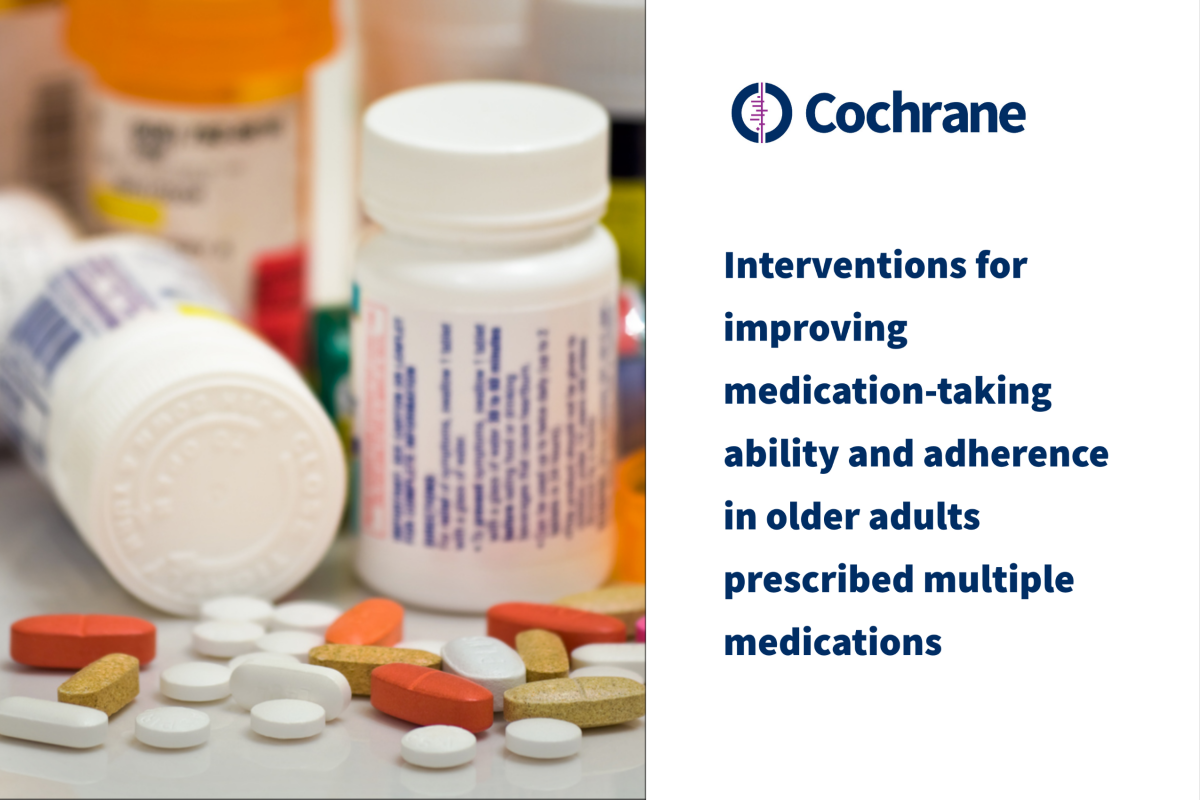
Older people are often prescribed multiple medications, which can be challenging to manage and may lead to under-use or over-use of medication or medication-taking errors.
Review authors asked, “What are the best ways to help older adults who have been prescribed multiple medications to use and take their medications”.
The review authors identified 50 studies, with 14,269 participants. Studies tested educational interventions, behavioural interventions, or both, to improve medication-taking ability or medication adherence. All the studies compared the interventions to usual care; and six studies also compared the intervention to another intervention as well as usual care.

Examples of "behavioral interventions" are multi-compartment dose-administration aids, simplifying the medication regimen (e.g. reducing number of dosing times per day), motivational interviewing, ongoing follow-up/support. "Educational interventions" include medication counselling with or without a review of medications (e.g. at the time of hospital discharge, at the time of dispensing)
These could be delivered individually or in combination by pharmacists and/or nurses.
The review authors did not identify any studies that assessed educational or behavioural interventions alone for medication-taking ability. Five mixed intervention studies used different measures of medication-taking ability, so the review authors could not determine the effects.
Behavioural-only and mixed interventions may improve adherence, but the effects of educational-only interventions are uncertain.
Mixed interventions may reduce the number of emergency department visits or hospital admissions and may lead to little or no change in health-related quality of life. Educational interventions alone probably have little or no effect on emergency department or hospital admissions, or health-related quality of life. The effects of behavioural interventions alone on emergency department or hospital admissions and health-related quality of life are uncertain. The effects of behavioural, educational, or mixed interventions on mortality are unclear.
The studies identified were very different in terms of what interventions people received, where interventions were delivered, and how and when studies measured people’s medication-taking ability or adherence. Due to these differences and problems with how the trials were conducted, the review authors considered the quality of the evidence to be low or very low overall.
Further high-quality studies are necessary to identify the most effective way to improve medication-taking ability and medication adherence among older adults prescribed multiple medications.
